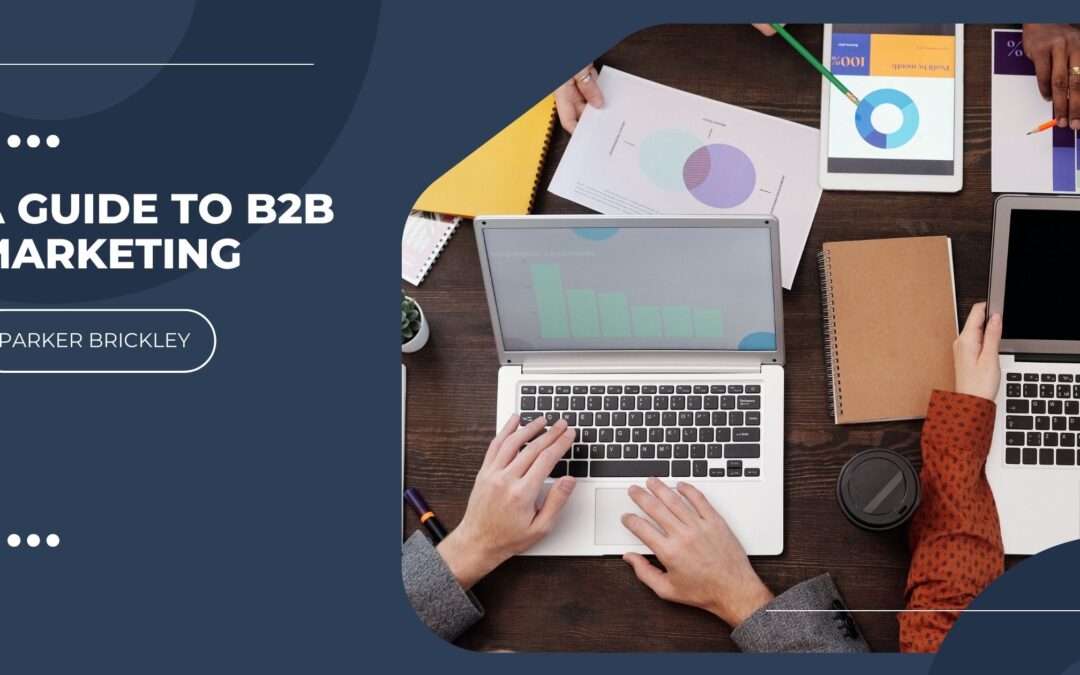Business-to-business (B2B) marketing, unlike Business-to-Consumer (B2C) marketing, focuses on meeting the needs of other businesses. The key to success lies in understanding the unique nature of business buyers: their decision-making processes, the factors influencing their purchases, and the channels through which they prefer to engage. These buyers are typically more information-driven and rational in their approach, seeking efficiency and expertise.
The evolution of B2B marketing has been significantly influenced by technological advancements and changing business environments. Traditionally, commercial marketing was largely about direct and personal relationships. Sales representatives played a crucial role in building and maintaining these relationships. Today, this genre extends far beyond personal relationships and face-to-face meetings. It involves a multi-faceted approach combining digital marketing techniques, data analytics, and technology-driven strategies. This transformation has been driven by the need for greater efficiency, scalability, and measurement in marketing efforts. Businesses are now looking for more data-driven, targeted, and personalized marketing strategies. The advent of digital platforms has also expanded the reach of marketers, allowing them to connect with potential clients globally. This new landscape requires marketers to be adept at handling digital tools, understanding complex buyer journeys, and creating content that resonates with a professional audience. As a result, modern techniques demand a blend of traditional relationship-building skills and cutting-edge digital marketing expertise.
Identifying and Understanding the Target Business Audience
This process involves segmenting the market based on various factors such as industry, company size, geographical location, and specific business needs. Unlike B2C customers, business buyers are driven by the need to make informed decisions that will benefit their company. They seek solutions that offer efficiency, productivity, and a strong return on investment. You may address the specific issues and problems that your target market has by doing market research, gathering client feedback, and examining industry trends. Creating buyer personas is a fictionalized depiction of your ideal clients that is based on factual information and well-informed assumptions about their objectives, motivations, behavior patterns, and demographics. Marketers may customize their message and content to match the unique wants and concerns of various groups by creating thorough buyer personas. With this focused strategy, marketing initiatives are more likely to be relevant, interesting, and successful in drawing in and winning over new customers.
Developing Effective Communication and Content Strategies
Effective communication and content strategies are the lifeblood of successful B2B marketing. Given the informational needs of business buyers, content marketing plays a pivotal role. This means creating and distributing content that is helpful, relevant, and consistent in order to attract and retain a narrowly targeted audience. Establishing your brand as a respected authority and reliable knowledge source in your sector is the aim. This can be achieved through various forms of content such as blogs, whitepapers, case studies, webinars, and instructional videos. Every kind of material has a distinct function in the purchasing process, from awareness to decision-making. Moreover, the tone and style of communication should be professional, informative, and solution-oriented. Platforms like LinkedIn are particularly effective, offering opportunities for networking, content sharing, and brand building. Email marketing is a powerful resource for personalized communication. It’s essential to ensure that all communication is integrated and consistent across different channels. This cohesive approach helps in building a strong brand image and facilitates a seamless customer experience throughout the buyer’s journey.
Leveraging Digital Platforms for Maximum Impact
In today’s digital age, leveraging digital platforms is a critical aspect. There are many tools and channels available in the digital world for marketers to engage with their target audience, create leads, and encourage conversions. Pay-per-click advertising and search engine optimization are essential for drawing in new clients and boosting online presence. A strong SEO strategy ensures that your content appears prominently in search engine results, thus improving the chances of being found by potential business clients. PPC campaigns, on the other hand, allow for targeted advertising, reaching specific segments of your audience with tailored messages. Social media platforms, especially those tailored to professionals like LinkedIn, provide valuable opportunities for networking, brand building, and content promotion. These platforms also offer advanced targeting capabilities, making it easier to reach decision-makers in specific industries or roles. Another vital component is analytics. Utilizing data analytics tools helps in understanding customer behavior, measuring campaign effectiveness, and making informed decisions.

